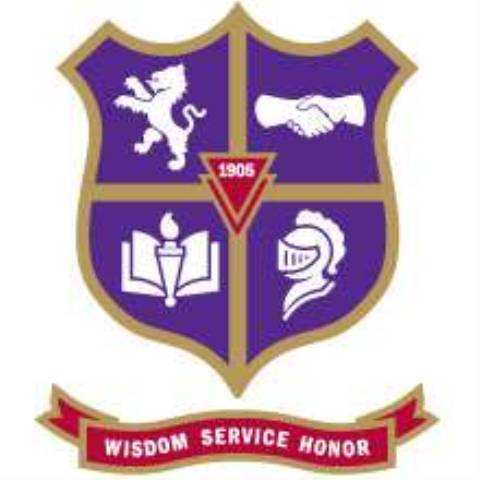The Headmaster’s Office was notified today that Darlington School has again achieved dual accreditation by the Southern Association of Independent Schools and the Southern Association of Colleges and Schools.
“A well-organized, thorough, comprehensive and very demanding process, accreditation is a healthy exercise for an institution like Darlington. It ensures that our policies and practices are safe and effective, carefully measured, and guide us well as we reach to empower students to learn with passion, act with integrity and serve with respect,” said Headmaster Tom Whitworth. “A school accredited by this dual process becomes part of an international network of accredited schools that are recognized throughout the world as emblematic of the highest quality in education.”
Throughout the accreditation process, which was led by Academic Dean David Powell, Darlington demonstrated a systematic approach for meeting quality standards in the following areas: vision and purpose; governance and leadership; teaching and learning; documenting and using results; resources and support systems; stakeholder communication and relationships; and commitment to continuous improvement. The school’s exhaustive and complete self-study was presented online and was praised by the visiting team of educators as ingenious, effective and wonderfully transparent.
Led by Woodward Academy CFO Barbara Egan, the visiting committee commended:
• The Board and administration for providing and participating in planning processes that have been thorough, transparent and provocative, and for subsequently providing the necessary resources to follow up appropriately.
• The faculty and administration for creating the time needed for collaborative and collegial work.
• The student body for their confidence, poise and enthusiasm for learning.
• The Darlington Community for the successful completion of a thorough and thoughtful self-study process, and for creating a self-study that models the school’s technology integration and vision.
• The Darlington Board for unequalled support of the school and commitment to success in the current Capital Campaign.
• The school’s leadership for creating an atmosphere where teachers have a voice in the future of the school.
• The Darlington Upper School Community for creating a “global village,” which results in Darlington graduates who are not only college-ready, but who are also ready to be productive global citizens.
• Darlington School’s commitment to supporting a diverse community of learners as demonstrated by the Teaching and Learning Center, the dedicated two-hour block for literacy and math in the Lower School schedule, and teachers’ enthusiastic adoption of and training in the Reading and Writing Workshop.
• The academic leadership promoting and setting standards for the use of relevant data (ERBs, Darlington Writes, rubrics) and assessments in making curricular, instructional and organizational decisions that have directly resulted in responsive teaching practices.
• The school for the increase in and wide variety of faculty professional development opportunities.
• The faculty for their accessibility to students, which leads students to feel supported, comfortable and confident in their interactions with adults on campus.
“Interestingly enough, the areas of focus recommended by the committee in our official report are ones that we as a school community had already identified and presented during the site visit,” Whitworth said.
These include emphasizing the use of Atlas Rubicon as a living document that promotes collaboration and discussing vertical alignment to more clearly define expectations for student learning; identifying teacher-leaders who are positioned to deepen whole-school conversations about best practices; looking at connecting the sports academies and unique “global village” in the Upper School in ways that will bring expanded opportunities to both Middle and Lower School students; communicating and celebrating the value and purpose of a single PK-12 school community with day, domestic boarding and international boarding student perspectives; having the faculty define and articulate the skills, competencies and values necessary for success in the world the students will inhabit; and developing a sustainable enrollment management plan.
“In today’s world of accountability in schooling, accreditation serves as a critical component of an institution’s demonstrated effectiveness and ability to provide successful schooling for children,” Powell said. “A school that is able to achieve accreditation demonstrates a commitment to a process that requires the school to meet a set of rigorous, research-based standards; to engage in a program of continuous school improvement; and to demonstrate quality assurance to its stakeholders through self-evaluation and peer review.”
Accreditation is voluntary and must be renewed each year. In addition, the self-study process and peer review visit must be repeated every five years for continued accreditation.
SAIS and SACS member schools are part of a remarkable history of quality assurance in education. SAIS began its organizational life in 1903 as the Mid-South Association of Independent Schools (MAIS). In 1953, another organization began as the Southern Association of Independent Schools, providing a forum for independent school administrators to work with public schools through SACS and to contribute to the larger interest in accreditation in the Southeast. MAIS and SAIS merged in 1986 to form the present-day SAIS, which now works at the state, regional, and national levels, to serve and strengthen member schools through the promotion of the highest quality educational standards and ethical conduct.
Established in 1985, SACS is a non-governmental, voluntary organization that accredits more than 13,000 public and non-public institutions from early-childhood to university. Today, SACS is the largest accrediting agency in the world. The current SAIS-SACS partnership offers schools a process for dual accreditation.
Darlington has been accredited by the Southern Association of Colleges and Schools since 1913, according to SACS records. In addition, the School holds membership in the National Association of Independent Schools, the Southern Association of Independent Schools, the Southeastern Association of Boarding Schools, the Georgia Independent School Association, the Association for Boarding Schools, and several other educational associations.

